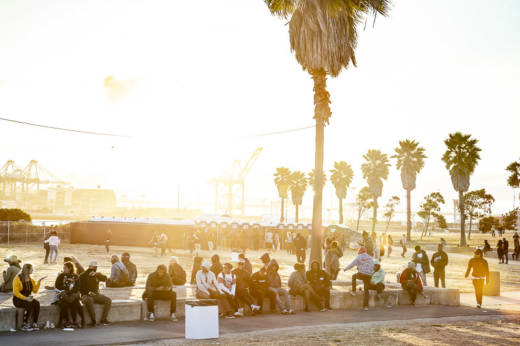Save the Bay, a conservationist group, pressured BCDC after observing adverse effects on Middle Harbor following Treasure Island Music Festival last year.
As KQED previously reported, in 2018 the Port of Oakland-owned and operated park hosted three music festivals attended by more than 4,000 people in addition to Treasure Island and Blurry Vision, which each drew more than 10,000 people across their two-day runs. Last year the Port collected more than $60,000 in rental fees for the events at Middle Harbor.
The Port’s contracts with event promoters including APE and Blurry Vision producer Goldenvoice, which KQED previously reviewed, included no park-specific environmental stipulations aside from standard cleanup, even though Middle Harbor Shoreline Park provides important wildlife habitat for migrating and endangered and threatened species of birds.
The spat between the Port and BCDC contributed to the festival cancellation. “With the new issues facing the site location…putting on a festival to the degree for which our fans have come to expect over the past decade is simply not possible,” Noise Pop and APE said in a statement.
Treasure Island’s move to Oakland was an attempted rebound. The festival’s 2016 installment was marred by a rainstorm, prompting many artists to cancel and leading to litigation from disgruntled and injured attendees. It took a year off in 2017 before resurfacing at Middle Harbor.
The festival organizers’ statement goes on to note other opportunities to support local musicians and events, including Outside Lands, Noise Pop Festival and “any of the hundreds of concerts both Another Planet Entertainment and Noise Pop bring to the greater Bay Area each year.”
A Port of Oakland spokesperson said in a statement that it notifies BCDC about concerts but acknowledged it has been “remiss in obtaining written approvals.”
The spokesperson added, “We’re implementing controls to make sure we fulfill BCDC’s requirements for all future concerts.”


